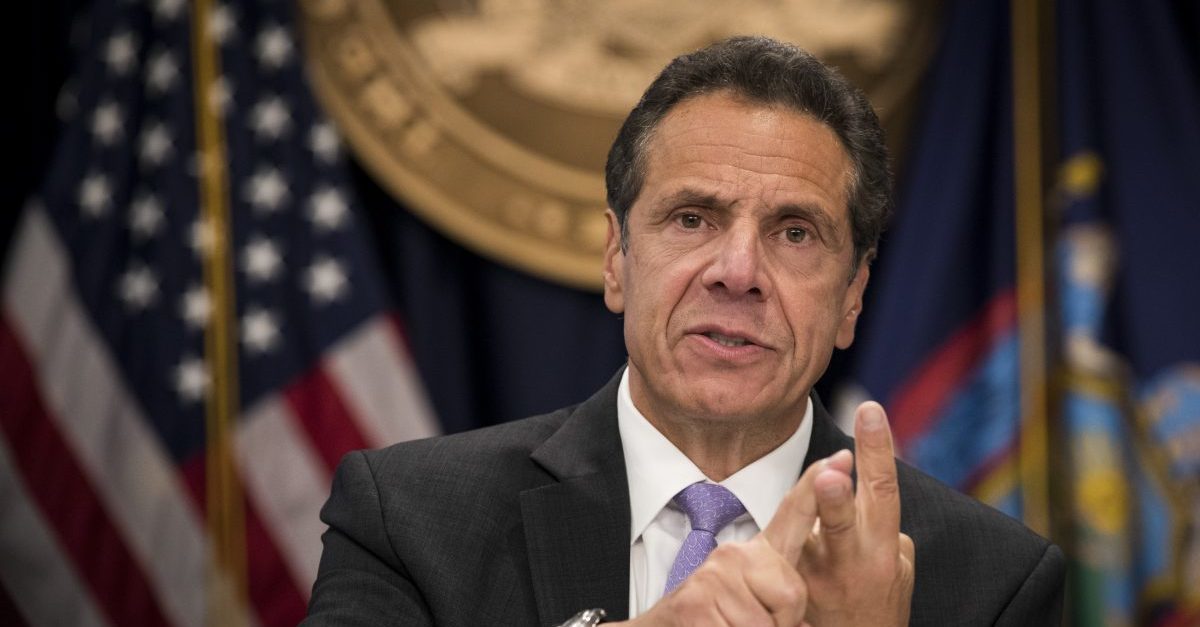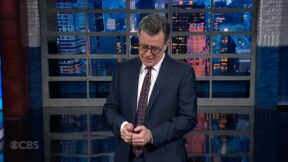Gov. Cuomo’s Group Home Covid Directives Also Harmed Disabled Adults in Care Facilities: Report

Drew Angerer/Getty Images
Gov. Andrew Cuomo (D-NY) is facing a high level of scrutiny over his directive from a year ago prohibiting nursing homes from rejecting Covid-19 patients after they were released from the hospital, but his pandemic management decisions also harmed disabled adults in residential care facilities, according to a report by Reason.
The March 25 nursing home directive was followed by another one on April 10, wrote Liz Wolfe in an article titled, “Cuomo’s Other Victims,” that “similarly instructed residential homes for adults with intellectual and developmental disabilities to accept asymptomatic COVID-19 patients back into congregate living facilities, in some cases without sufficient testing and isolation protocols in place.”
Republicans in the New York Senate sent a letter to the state’s Office of People with Developmental Disabilities (OPWDD), noting that the April order from that agency was “almost identical” to the controversial March 25 nursing home order, and outlining concerns with the pandemic response “and failure to protect New Yorkers with intellectual and developmental disabilities living in group homes during the pandemic.” The senators also demanded updated information on Covid-19 infection rates and deaths in these residential facilities, openly questioning if the governor had obscured the true toll of the pandemic there, as he is accused of doing regarding nursing homes.
In a statement, the OPWDD said that “residents of OPWDD group homes who were sent to the hospital for COVID-19 treatment were returned to their homes after being deemed safe to return by the hospital physician, in consultation with the residential provider,” and reported 6,952 confirmed positive Covid-19 cases and 553 deaths.
Relatives of the group home residents have also complained of cancelled services and other disruptions to their routines during the pandemic:
Many take part in some form of daytime programming, which has been made unavailable. Some people with intellectual and developmental disabilities struggle with mask wearing, failing to understand why it even needs to happen in the first place. Families across the state were barred from seeing their loved ones in person for many months; local news accounts are replete with stories of intellectually disabled adults not understanding why in-person visits with parents, siblings, and friends had ceased. For many families, Zoom and FaceTime made for an insufficient stand-in, as some people with disabilities struggled to make sense of the technology and couldn’t reap the same benefits of feeling connected to their loved ones through a screen.
Several family members of group home residents who contracted Covid-19, or even died from it, shared their grief and frustration with Reason, describing how “[t]hey still had to share bathrooms and could not avoid infecting others” and accusing the Cuomo administration of “abandon[ing] the most vulnerable leaving not for profit agencies fending for themselves.”
Cuomo is facing multiple investigations regarding sexual harassment accusations and nursing home deaths, including an impeachment inquiry in the New York Assembly Judicial Committee. “As Cuomo deals with the messy fallout” from this growing list of scandals, wrote Wolfe, “New Yorkers should remember that his misdeeds have become almost too numerous to count and that many people’s lives have been affected—or ended—as a result of his early-pandemic directives, some of which remain in place today.”




